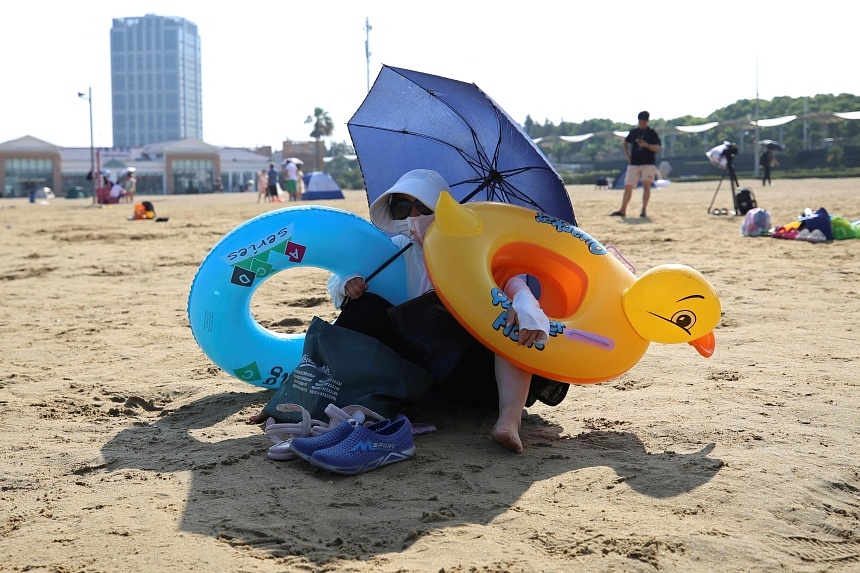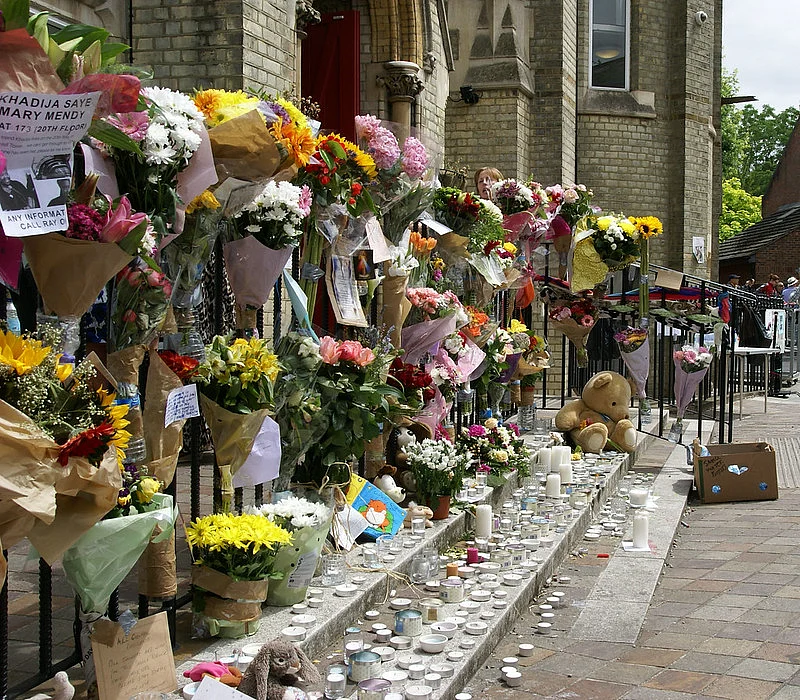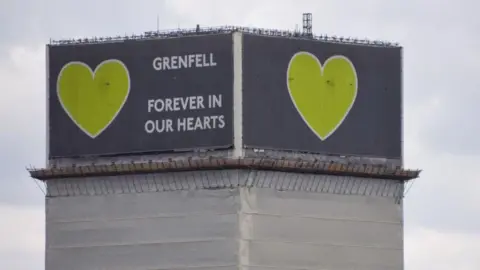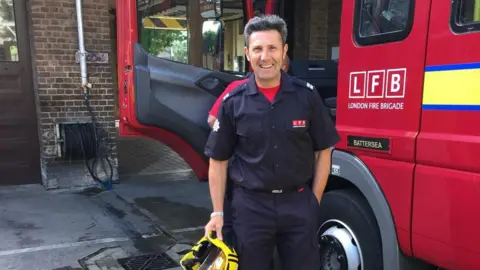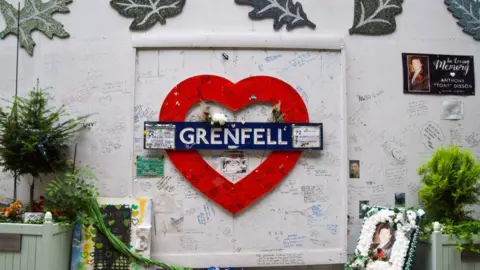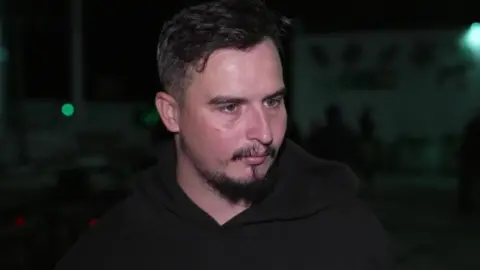Slaying Neoliberalism With ‘Holy Rashness’ and the Slow Build of Character

Photograph Source: J.Nicolas KONDA YANS – CC BY 3.0
The world pushes you into poetry by withdrawing something, not giving it.
– Martin Shaw, Courting the Wild Twin
Culture is defined not by what you gained but by what you were prepared to live without.
– Ibid.
As many nerve endings as there are in a body, are the messages attempting to issue forth amongst place, animal and person in regard to climate change. I think we should forget the rest and attend to ours. Staggering spiritual repair is called for. It is not just those bad white men in power that did this. We all did. Acknowledging that is the end of… [the attempt to ward off evil, keep ones hands clean, etc.]
– Ibid
The distinction people customarily make between the “strong” and the “weak” has troubled me for a very long time. I’m sure that’s partly because when it’s spoken, I assume the distinction puts me – with my lifelong tendency to passivity – in the camp of the weak. But doesn’t the judgmentalism in making such distinctions presume something is known objectively that may, rather, be the unkind pronunciation of a curse? Once long ago Orin’s grandmother Lucy shared with me her division of her (local) grandchildren (Orin and his siblings) – into the weak and the strong. No doubt influenced by the pain of her marriage to a chronic womanizer she pronounced Orin, whose ill-starred youth had included a pregnancy and a drug arrest, one of the weak. At the time, newly married, I was spooked enough by this kind of absolutist binarism that I could not tell him what his grandmother had said to me; was I protecting him or me?
Strength and weakness are qualities of character. Although it exists here and there still, and “we know it when we see it,” there’s a lot of confusion today about what character is. Heroes, we are brainwashed to believe by constant repetition, are those in military or paramilitary service who “fall in the line of duty” or the self-sacrificing”good people” who “would give you the shirt off their back.” Heroes are no longer (necessarily) exemplars of the old virtues of character.
In his brave and excellent book, Courting the Wild Twin, Martin Shaw calls culture a consequence of learning to “live without,” and the same must be said of character. That is, virtue’s not found in servilely putting up with abuse or oppression, but also it’s not denying the reality of inescapable darkness, tragedy, trauma, evil – a thing demanded of nobody today outside the underclass. Instead, keeping hands clean, we navigate our lives within the “no-limits” promise of the middle class “good life” and the virtually enhanced reality of our screens. We in the liberal class shed any expectation of finding the old virtues in others or of exemplifying them in ourselves; we survive on a minimalist diet of irony and trenchancy (and lots of Jon Stewart) instead. No longer believing in the inner strength and independence that is gained by means of active engagement with the spiritual dimension makes us dupes for the “enlargement” provided through identification with the NY Times and corporate-owned media gospels.
Whether or not we care about the altered status of character is one thing. But, assuming as I do that character is what human culture-making beings “are for,” surely its uncertain status allows the collective mad, doomed Pequod-ride we’re on never to trigger mass changes in “lifestyle.” Rather, it triggers helplessness. It allows for the unironic hailing of Kamala as the Second Coming for we no longer care if someone is truly a leader or merely a (our) smart cookie. As long as no major changes are called for on my part, “I’m good” with letting the DNC choose for me!
As Martin Shaw points out, the amount of “spiritual repair” needed at this point is “staggering;” it is the serious work lying before us. Such repairwork is connected, not surprisingly, to a place where many of us would “rather die” than look – i.e., at the wounds to our soul that one carries just from having been (de)formed in a soulless social world; in other words, at trauma.
+++
In shared, consensus reality, “things spiritual” are less than “the real,” and “soul” is an attribute of black people that gives their music incredible power. A world that will not recognize the reality of things that exist at inward depth, invisibly, individually and subjectively, in necessary counterpoint to the “above ground” of conventional truth isincomplete. Imagination stunted, western liberal white culture is not seriously designed to nurture the “unnecessary baggage” of strength of character. Thus, it is not a culture, and might as well have been intentionally designed for the opposite purpose, to produce people preternaturally susceptible to weakness and victimhood, all of us bearing original shame, and without a clue as to our condition, such that we can find ultimate meaning, value and validation only in the given terms of spiritual void.
A culture that roots people in character will not be restored without some individuals taking the path of a different heroism, what Martin Shaw calls “courting the wild twin.” This “courting” is about reclaiming one’s soul, the wholeness of Being compromised early in life in the white liberal trajectory. Whether compromised through the subtler, slow trauma of socialization in a rigidly caste and dogmatically rationalist society, or by the heavier hand of brutality, conscious or unconsciously applied, or a combination of both, no matter.
Through a young woman friend who was a devotee of our coffeeshop in Utica (she of the “Thank gods for Cafe Domenico” sign some readers may remember), Shaw’s book landed in my hands. He is a disciple of the mythopoetic men’s movement of the 1980’s and 90’s which, with emphasis on imagination and the arts, and its fearless embrace of depth, gave spiritual nourishment to many men (and some women). Thirty or so year later, evidence that movement ever existed is hard to come by.
I speculate as to why this is so, placing the burden on “all of us” as much as on the rapine oligarchs and plutocrats: Valuable and “life-changing” as were those retreats with Robert Bly or Michael Mead or James Hillman, the understanding may have been lagging on the part of participants that such profound, “breakthrough” spiritual experiences, including intensive psychotherapy, or shamanism, are jumpstarters not gamechang
The “courting of the wild twin,” the re-connection to one’s soul, can be and has to be practiced at home! But,importantly: if one takes up this way, time will not be the same “time” with which one is familiar. We live in the world of “I wanted that report yesterday,” “this computer is too slow,” etc. Nobody would know what to do if they found themselves on that “slow boat to China,” no matter who with! We’re not trained to think in terms of the years – the immeasurable time – it takes for inward change to occur, let alone the lack of any sort of guarantee that change will occur or of what the change is that we want! The change in perception of time would require us, say, to be like the farmer who’s being urged to make the corn grow faster, adapted to a different measure, respectful of slowness. Slowing down may give the best chance we have to be the ones capable of building an alternate, better world, not just to rally, again and again, to elect another “lesser evil.”
The changed relation to time makes the connection with the “wild twin” – one’s real soul – a continuous action of faith, with no specific outcome guaranteed, change occurring “the old-fashioned way.” It places an entirely new spin on the meaning of “love.”
********
This current stage of my life has brought a prolonged crisis of spirit. Roughly post-pandemic, it began perhaps when the coffeeshop’s finances were beginning to be impossible, but only my husband and the accountant knew it. It continued through the moment when the Cafe’s financial ricketiness could no longer be denied, but Orin was denying it, spring 2023. Perhaps the horror of helplessness had triggered old trauma; his presence – though always mercurial with artist types like ourselves – became less reliable. Only by means of my writing, constantly calling on imaginative reality, was I able, just barely, to maintain my trust in the soul’s process as it works in someone not myself. Through persisting in my daily writing, insisting I still knew things even as the myth-based knowledge we used to share appeared to be no longer of any use in our relationship – I have waited, in the manner of the patient soul itself (but far less patiently!), rather than declare the situation hopeless.
During a period in history when trauma is universal, here indeed was a lesson in this different take on “time!” one must be prepared for. In our world, where social transience is the norm, it’s permissible, accepted, even, to discard relationships, with people and with places, vows understood to be relative, misery optional. In so doing we know what is gained. What we’ve lost is occluded from awareness, but might it be – fingers crossed! – the chance to deepen, to rely upon spiritual resources, to grow strength of character, to be able to live with enough?
There’s no good reason to sacrifice oneself for a relationship with one who by all appearance has abandoned the faith formerly shared. But consider this: we’d anchored our relationship in our belief in the creative life, in taking our mutual maladaption to this”war-is-peace” world as sign we must make our own meaning. Along the way, we made choices that were not “smart,” such as purchasing an affordable home in a city neighborhood on the skids. In an act of “holy rashness,” (Shaw’s term) we launched our own small business in rustbelt, red-state upstate Utica. Though our Cafe invoked “the spiritual energies of the universe,” it was not smart. But to extricate, while a means to do so may be found, is to abandon the faith that had provided the meaning in which we were anchored.
Not that my faith hasn’t waivered countless times; I deserve at most a C- in the endeavor to keep both faith and sanity. Spiritual crisis, for those without a church, with no medicine men in the village, is not simple to treat.
Trauma ground is numinous ground. One reckons here with the mythic layer, where primitive powers – not nice, willing-to-negotiate, I-feel-your-pain personas – hold sway. This ground attracts us in stories built of mythic elements, such as Beowulf, or Star Wars (or that are incorporated in the Gothic world of Jane Eyre); but few of us are equipped to do battle with Grendel in the form in which he and his mother will appear, in relationships. To a point, I am experienced in the slow, at-home practice of change that is a continuous shedding of projections. But at times, the experience of receiving the other’s projection in intimate space is so powerful one wishes for an exorcist! PTSD terror ushers in the Father of Lies; makes Old Scratch at home in the soul despite a person’s most honorable intentions, and protestations of love. Just ask Dr. Jekyll!
Finally, in the last week, there’s been a change. It came about as result of a different crisis, one I unintentionally precipitated. I allowed myself to want to make it to a reunion on an island in Maine I have not revisited in nearly 50 years to see in particular two friends I’d lost touch with over 40 years ago. I did not know what I was doing, only that I allowed myself to want something in a way that fell decidedly in the area of the mythical, of dream and memory.
Embarking on such an adventure was no longer simple for me. I’ve become timorous about travel. I/we could not financially afford for me to go. With help from my brother and his wife who were attending the reunion, and with Orin going as far as my brother’s home in Vermont, it was accomplished. Since our return, I have the satisfaction of having secured old friendships, and on Orin’s end, his crisis has broken open. Although “Mother truth” is terribly slippery, he knows it’s his and that he is powerless to change it. He is in heroic terrain now.
+++
The crisis with the Cafe’s end is not proof that our devotion to our small business was mistaken. It is not evidence that we are crazy to live in a way that nobody else lives – holding to our relationships, like Charlotte Bronte (whose biography by Elizabeth Gaskell I’m currently reading) to her moors and the dreary parsonage in Haworth that had seen the deaths of three siblings. In staying put, the change that’s “forced” by the seeming impossibility of change, is inner not outer. It is change on behalf of inclusion of the wild twin, the soul which carries the standard of truth.
I do not mean to imply that I am a person of character; that judgment is not up to me to make, and I’m certain I fall short. But the liberal world that includes friends near and far who choose the “winner’s circle” – the world informed by neoliberalism – has strayed from the standard carried in the individual soul. It hails the candidates Obama and Harris because the NY Times sanctifies them, as it sanctified the war in Iraq and the persecution of Edward Snowden, and sanctifies Israel’s influence on America’s government that makes us endorsers of genocide. The prize that comes with “living without,” is not, in my belief, a Hereafter. It is experience of the marvelous in the present, the merest taste of which can strengthen the will, without vanity or gloating, to be on the side of prophetic truth – truth’s necessary political expression – everywhere denied though it may be.






